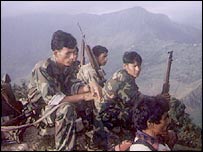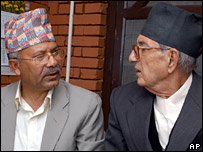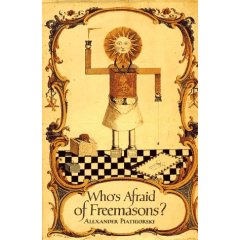Sri Lanka is not like the Indian subcontinent in having wandering holy men, mountain retreatants, or jungle renunciants. In fact, the practice of meditation on the island was only recently 're-instituted' by Sri Lankan's late modern day saint, Anagarika Dharmapala in the late 1890s.
 Successive waves of Portuguese, Dutch and English colonial missionaries had tried their best to stamp Buddhism out of the Sinhalese people. But with the likes of Dharmapala and others, who taught meditation and Buddhist ethics openly, by the early 1900s, the practice was available to monks and lay followers alike. Dharmapala is most remembered for founding the Mahabodhi Society in Bodhgaya, India and his life-long battle to wrestle the 'ownership' of the Mahabodhi Temple, which marks the seat where Shakyamuni Buddha attained enlightenment, from the Hindu mahats. Dharmapala’s intention was to place the Mahabodhi Temple in the hands of Buddhists--a battle that is still being fought today.
Successive waves of Portuguese, Dutch and English colonial missionaries had tried their best to stamp Buddhism out of the Sinhalese people. But with the likes of Dharmapala and others, who taught meditation and Buddhist ethics openly, by the early 1900s, the practice was available to monks and lay followers alike. Dharmapala is most remembered for founding the Mahabodhi Society in Bodhgaya, India and his life-long battle to wrestle the 'ownership' of the Mahabodhi Temple, which marks the seat where Shakyamuni Buddha attained enlightenment, from the Hindu mahats. Dharmapala’s intention was to place the Mahabodhi Temple in the hands of Buddhists--a battle that is still being fought today. When Monica and I arrived in Walligama a few days back, I asked some of the locals if they knew of any hermits or sadhus in the area. I have made it a habit as I travel around the world of asking locals about their holy men or magicians. I've been taken to funky astrologers in Madras, ash-covered ascetics in Kathmandu, mountain yogis in Tibet, as well as a fair number of bona fid charlatans. Without centuries of a hermit-tradition in Sri Lanka, I did not expect to find a holy man. An unlikely source stepped forward—Arun, self-proclaimed 'party boy' and our local surfing guide. He told us he knew of a local hermit and would arrange for someone to take us to see the 'jungle man', as he called him, in a day's time.
Bouncing through the jungle on dirt and mud roads in Arun's three-wheeled tuk-tuk, we stopped off to buy some jack fruit and pineapple, as well as a straw mat, to present as offerings to the hermit. On the way, we picked up another local, Ajit, who said he knew stories of the jungle hermit, Dhayananda. Ajit told us how Dhayandana never ate rice but only fruit, tea and water, and how he only moves from his abode in the evening when nobody can observe him. He also only speaks to his mother. It is said he meditates all night, but during the day he does not like to demonstrate anything and as such, if people come around his mud hut, he lies down on the floor. While I did not expect to discuss the meaning of life with the hermit, but I nevertheless was hoping for some sort of advice from someone who had been meditating for forty years.
After an hour of driving, we arrived at a clearing in the thick jungle where fifty water buffalo grazed in a lush bog. Arun told me to walk ahead of him, finally telling me that he was in fact a bit afraid of the jungle hermit.
"Maybe he’ll throw jack fruit in your face," Arun warned.
I nonetheless grabbed the sack of fruit and proceeded towards Dhayananda's 'house', which was more of raised clay platform with a thatched roof, situated under a grove of banana trees. When I approached the doorway, I found him lying on his side on a broken wooden board, his head resting a square stone.
"His face is glowing," were Monica's first words when she saw him.
Dhayananda’s serene expression did not change when I approached him; though I found out later we were the first foreigners he had ever laid eyes upon. I set the bag of fruit and straw mat next to Dhayananda, and then stepped up into his seven-foot square 'house' and sat on the floor. There were no windows though a crack in the back wall allowed more light in than a normal window. A clay pot of water was the only thing in the room. A plastic picture of the Buddha was tacked to the wall and underneath it was a framed black and white photo of the hermit's deceased brother. And below the Buddha and brother was, surprisingly, a battery-run clock. When I asked what need Dhayananda would need for a clock, his aunt told me that he has a cup of tea at 3 pm sharp everyday. His aunt continued to tell us that Dhayananda chants simple Buddhist verses in the night, especially when the moon is overhead. And that he only leaves the room at night to wash and clean his teeth when no one is watching. Though villagers used to visit him to ask him advice on many matters, Dhayananda would deflect their questions, and not accept their offerings.
Dhayananda pulled the straw mat we gave him closer to him to inspect, sitting up briefly. Extending twice the length of his body, in a flatly matted 8-inch wide dread, I saw that he used his hair as his bed. His body was thin, but not frail, like many of the yogis I have met in India. I immediately thought of some of the Shiva swamis I had just seen ten days before in Bodhgaya, and how they conveyed a sense of entitlement to pilgrims' alms because of their supposedly holy appearance. Dhayananda was awaiting nothing. He did not have any expectation, that was for certain. As he looked at me with a smile, it seemed he would have looked to a local villager, a bumblebee, or the jungle itself with the same contented eyes. Though I asked a few questions, he indicated he did not know anything, so I did not persist in trying to get him to speak.
Then to our surprise, Arun pulled a bottle of whiskey from his pocket that had survived the previous night's beach party in Walligama. Seeing what Dhayananda would do, Arun set the bottle next to him as an additional offering. Dhayananda, as if to somehow instruct us on the meaning of 'spontaneously abiding', opened the bottle and in one motion, downed the contents of the entire bottle, without the serene look in his eyes wavering. I was convinced he had done so to demonstrate his utter non-attachment to anything. Indeed, it seemed that he had gone beyond needing anything, any thing at all.
 As I departed, I took my camera out. As if he wanted to mark my picture with his own stamp of spontaneity, he held the whiskey bottle in the air and waved good-bye.
As I departed, I took my camera out. As if he wanted to mark my picture with his own stamp of spontaneity, he held the whiskey bottle in the air and waved good-bye.



































